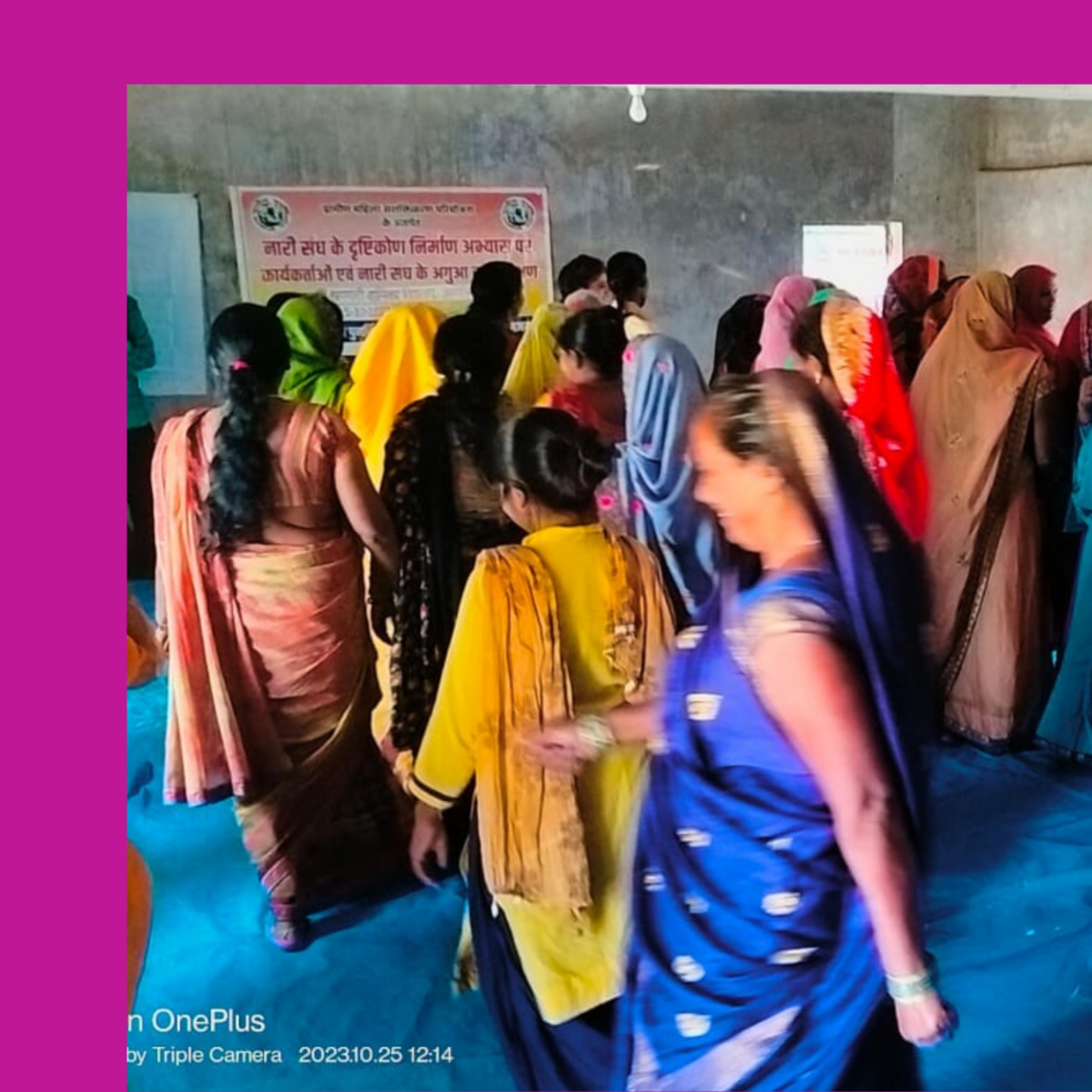
Our lives are more than statistics and infographics. These lived experiences are dictated by many levels of violence, trauma, and indifference.
Silence is NOT golden: #16DaysOfActivism with Shadhika
By Vanita Ganesh, Communications Officer
December 15, 2023
Reading Time: 5 minutesTW: Violence, abuse, mentions of suicide.
- – Over 4.45 lakh crimes against women in 2022, one every 51 minutes reported the recently released National Crime Records Bureau data (NCRB 2022).
- – The National Family Health Survey-5 (NFHS-5) reports women aged 15 to 49 years experience 29.3% of domestic violence in India.
- – 30% of women in India reported being subjected to physical and sexual violence (NFHS-5).
- – A lack of safe spaces like schools and other public spaces forced many girls to drop out of school, a study from six Indian states by Save the Children reported.
- – Data also shows a 45% rise in reported rapes of Dalit women between 2015 and 2020 (National Crime Records Bureau 2021).
- – Only 18% of participants in middle/high school in the southern state of Tamil Nadu identifying outside mainstream sexual identities reported bullying incidents to school authorities (2018 study by Sahodaran, a male sexual health project, and UNESCO).
Note: We could not find a comprehensive nationwide study about the violence and impact India’s LGBTQIA+ community has to face.
These are hard facts about the reality that women, girls, queer youth, and other marginalized groups in India contend with. But our lives are more than statistics and infographics. These lived experiences are dictated by many levels of violence, trauma, and indifference.
The #16DaysOfActivism campaign is an annual commemoration of the work done to further gender justice and fight gender-based violence, as well as a reminder of the difficult and long road ahead.
This year’s commemoration was especially difficult with global conflicts and crises and their toll, but also due to the death of a young content creator in India.
Pranshu, a 16-year-old self-taught Instagram beauty influencer was found hanging in their home in Ujjain in the central Indian state of Madhya Pradesh on November 21. A video they uploaded wearing a saree attracted thousands of hateful comments, bullying Pranshu for looking and acting “feminine”.
This incident, and the numbers above, are society’s reminder for us to ‘toe the line’, to ‘man up’, a reminder of what happens when hetero-patriarchal boundaries are transgressed.
But we can, and we must change. And Shadhika’s programs and participants are evidence of this.
What is needed, and what we have seen works, is a collaborative and intersectional approach that involves all stakeholders: students and children, families, and the education system.
At a time when 30% of women in India reported being subjected to physical and sexual violence (NFHS-5), 67% of female family members of our program participants from Shadhika’s Men Against Gender-Based Violence Initiative reported positive behavioral and attitudinal change. 80% of men and boys from the program reported a better understanding of gender-based violence.
Just during her participation in Shadhika’s programs, each Shadhika Scholar grows as a community leader, reaching 112 people on average.
While past programs addressing gender-based violence faced challenges, especially resistance from men and the community, Shadhika recognizes that achieving true gender justice requires systemic change. Interventions must be family-centric, intergenerational, and backed by external resources to prevent and mitigate violence.
Acknowledging the complexity of power structures within households and communities, we prioritize a collaborative, rights-based, and bottom-up approach. Our focus is on supporting local NGO partners targeting individual behavioral change, institutions, and policies to shift systems perpetuating gender inequality and power imbalances.
All said and done, without any seat at the table and representation, policies and actions can mean very little. It can only mean more dehumanization and marginalization, and deprivation and silencing in the name of protection. We have seen the Shadhika Scholars and participants emerge as problem solvers, negotiating for their rights and standing up against rights violations in their communities.
What can you do to support this work? Here is where you can show up for this gender justice work.
- You need to speak up and have difficult conversations with your circles and friends.
- Show your support by volunteering, speaking up on social media or other visible platforms, and supporting activists, collectives, and organizations on the ground with the best tools to address immediate needs.
- Donate to organizations like Shadhika that support Scholars, participants, and partner organizations across India and who support some of the most underserved communities.
Looking back at what we learned and shared during this year’s #16DaysOfActivism, through the updates and field notes from Shadhika’s Partners and Scholars, through the resources shared online and offline, the Tweet Chat we participated in, what stood out the most was how you, dear supporter, showed up for Shadhika. It might seem like a grim end to 2023, but here’s to celebrating the Scholars and Partners, the Shadhika staff, and your support and allyship.
Your support to Shadhika will create long-lasting ripples of change for young women and girls in India. Will you join us?
Read more